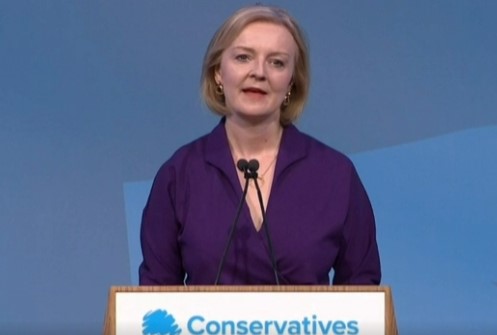Charity pension scheme trustees have been urged to speak to advisers to identify key issues that need to be addressed and which actions are most urgent, ahead of “another busy” year for pension schemes.
The comments were made as part of the Charities Pensions Club’s (CPC) latest benchmarking report, which included advice from the club's partners, CMS and Isio, noting that most CPC members are the only pension specialist in their organisation.
Commenting on the report, CMS partner, Neil Smith, and senior associate, Kate Freeman, warned that the coming year "looks like it will be yet another busy one for pension schemes".
"With the impact of the Pension Schemes Act 2021 still being rolled out, other new legislation, and guidance from The Pensions Regulator (TPR) expected this year, there will be plenty to do," they continued.
"For example, TPR’s new Single Code of Practice is expected to come into force this year. This threatens to be a huge document, as the current draft is over 150 pages.
"While the original aim was to consolidate material from ten of TPR’s existing codes of practice, the code has now been expanded to include extra detail and some entirely new sections."
In addition to this, CMS noted that 2022 should be the year when pension schemes finally get a proper understanding of what they will need to do to facilitate the government’s plan for pensions dashboards, with consultation on detailed new regulations due in the winter.
In light of this, the firm suggested that trustees and employers should speak to their advisers to help them identify which issues are most relevant to them.
"This should help to identify where decisions are needed and which actions are most urgent," they stated.
Adding to this, Isio director, Gemma Woodall, and senior manager, Jen Norris, predicted that the trend towards scheme consolidation will continue, given the cost savings and reduction in management time.
"The government has indicated its desire for consolidation of the defined contribution (DC) pensions market, and onerous new requirements have been introduced for own-trust DC schemes aimed to ‘nudge’ smaller DC schemes into a consolidation vehicle, often a master trust," they stated.
“The impact of the cost-of-living crisis can’t be ignored, and individuals will need to focus on short-term financial decisions.
"Employees may start to look for ways to cut back and consider reducing DC contributions or opting out completely, which could significantly impact their long-term savings."
However, Isio clarified that while this could be the right decision, it needs to be informed, stressing that financial wellbeing support is becoming a must-have for employers, rather than a ‘nice to have’.
"Organisations will need to balance this additional demand for support with the impact of the crisis on their funding, costs, services and customers," they said.
Woodall and Norris also said that there is also a trend of pension schemes committing to a net carbon zero target by 2050, and starting to explore interim targets.
"There is also an increased focus on social issues such as modern slavery, and diversity and nature issues such as deforestation and biodiversity loss," they continued.
"Increased interest from DC scheme members to invest sustainably means almost all large DC own-trusts and master trusts now embed ESG factors into their investment philosophy for the default strategy."
Adding to this, CMS's Freeman and Smith suggested that ethical investing is "naturally something that charities are likely to take an interest in", pointing out that the government is also keen to expand the obligations on pension trustees to take account of ESG factors.
However, the firm clarified that although the recent Butler-Sloss case may have brought some clarity to the trustees of charities regarding ethical investing, it is important to note that the ruling did not apply to pension schemes.
"While further guidance from the courts on the principles which pension scheme trustees should consider in relation to ESG would be very welcome, it is not clear if or when the courts may have the opportunity to provide this guidance," they stated.
This article is taken from Charity Times' sister publication, Pensions Age. You can read the original article here.
Latest News
-
2025: Most-read news
-
Regulator probes ‘serious and significant’ safeguarding failings at Christian charity
-
Government seeks experts to join Civil Society Covenant body
-
Online creators raise more than £3m for eight charities
-
Oxfam GB CEO leaves following conduct investigation
-
Leadership diaries: The rhythm of governance
Charity Times video Q&A: In conversation with Hilda Hayo, CEO of Dementia UK
Charity Times editor, Lauren Weymouth, is joined by Dementia UK CEO, Hilda Hayo to discuss why the charity receives such high workplace satisfaction results, what a positive working culture looks like and the importance of lived experience among staff. The pair talk about challenges facing the charity, the impact felt by the pandemic and how it's striving to overcome obstacles and continue to be a highly impactful organisation for anybody affected by dementia.
Charity Times Awards 2023
Mitigating risk and reducing claims

The cost-of-living crisis is impacting charities in a number of ways, including the risks they take. Endsleigh Insurance’s* senior risk management consultant Scott Crichton joins Charity Times to discuss the ramifications of prioritising certain types of risk over others, the financial implications risk can have if not managed properly, and tips for charities to help manage those risks.
* Coming soon… Howden, the new name for Endsleigh.
* Coming soon… Howden, the new name for Endsleigh.
Better Society

© 2021 Perspective Publishing Privacy & Cookies










Recent Stories